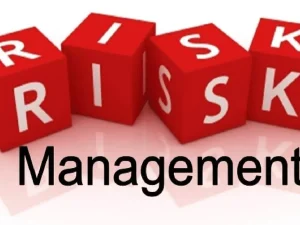No.1 Best Administrative Management Training
- Description
- Curriculum
- Reviews

Administrative management is critical to the success of any organization. It involves overseeing office operations, ensuring efficiency, and enabling seamless processes that support the broader organizational goals. This admin manager training is a training for administrative officers in Nigeria and beyond, specifically designed to help professionals develop and sharpen their skills in managing office environments, coordinating teams, and handling complex administrative tasks. Whether you are looking to advance in your current role or break into the field of administrative management, this administrative management training equips you with the essential tools needed to excel in your profession.
One of the key aspects of this training for administrative officers in Nigeria is the unique focus on understanding the administrative structure within Nigerian organizations. The administrative challenges faced by professionals in Nigeria require tailored solutions, and this admin manager training addresses these issues, ensuring that participants can manage offices effectively. The administrative management training provides an in-depth approach to problem-solving in office environments, teaching how to balance local cultural expectations with international standards of professionalism.
Understanding Administrative Management
Administrative Management, also referred to as business administration, is the management and application of the processes an office, business, or organisation. It involves the efficient and effective organisation of people, information, and other resources to achieve organisational objectives. [instam.org]
Administrative management is the backbone of any well-functioning organization. It encompasses a wide range of tasks that are vital to office operations. This administrative management training prepares professionals to manage various administrative operations within an organization, from office logistics to strategic planning. The knowledge gained from this training helps administrative managers ensure that all procedures within the office run smoothly, resources are utilized effectively, and communication across departments is efficient.
In Nigeria, administrative officers often deal with specific challenges that are unique to the region. This administrative management training for administrative officers in Nigeria provides insight into these challenges and offers practical strategies for overcoming them. This helps professionals stand out in their field, as this admin manager training goes beyond just the basics. Participants will learn how to oversee office logistics, organize essential documents, manage complex schedules, and navigate workflow optimization—all while balancing the specific needs of Nigerian offices.
As part of this administrative management training, participants will also develop their leadership and interpersonal skills, which are vital for effectively managing teams. In today’s fast-paced business environment, an admin manager must juggle multiple tasks simultaneously, and this admin manager training ensures that professionals are equipped to meet those demands.
Key Aspects of Administrative Management Training
The Administrative Management Training focuses on the following core areas that are essential for every admin manager to master:
1. Office Logistics and Document Management
An administrative manager is often tasked with organizing and managing the logistics of an office. This involves ensuring that resources, such as office supplies and technological tools, are available and effectively used. Additionally, document management is a critical function. Properly handling data and information, whether digital or physical, is necessary to maintain a well-organized office environment. In this administrative management training for administrative officers in Nigeria, participants will learn how to implement efficient document management systems that ensure easy retrieval, storage, and security of essential documents.
With businesses increasingly relying on digital platforms, the importance of managing data flow across different channels has grown. This administrative management training will train Administrative officers in Nigeria on how to manage both paper-based and electronic systems, ensuring that administrative tasks, including data collection and reporting, are accurate and efficient. You will learn how to oversee the life cycle of information, from creation to storage, and ensure compliance with data protection regulations, particularly in Nigerian markets.
2. Time Management and Workflow Optimization
One of the most significant challenges administrative managers face is managing time effectively. Time management is the cornerstone of productive office administration. In this Admin Manager Training, participants will learn proven techniques to prioritize tasks, set realistic goals, and optimize workflows for maximum efficiency.
In administrative management, workflow optimization involves identifying bottlenecks in office processes and finding solutions to improve performance. The administrative management training teaches you how to apply workflow optimization techniques, such as process mapping and Lean management principles, to ensure tasks are completed faster and more efficiently. By streamlining processes, you’ll not only reduce delays but also create a more productive working environment.
3. Leadership and Team Coordination
While admin managers focus on day-to-day operations, they must also take on leadership roles within the organization. The ability to lead and coordinate teams is essential for ensuring that office staff work together toward common goals. Team coordination includes delegating tasks, managing projects, and fostering communication across various departments. It requires a deep understanding of team dynamics, as well as the ability to motivate and guide others.
The administrative management training emphasizes leadership development, providing you with the tools to build trust, enhance team performance, and resolve conflicts effectively. As a leader, you will learn how to balance your role as an administrator with the responsibility of guiding your team toward success. Whether it’s through strategic planning or day-to-day management, the skills gained in this area will help you cultivate a culture of productivity and collaboration within the office.
4. Strategic Communication and Professionalism
Effective communication is another critical skill for any admin manager. Whether you are coordinating with internal teams, communicating with clients, or managing vendors, your ability to convey information clearly and professionally will have a direct impact on the success of the office. Strategic communication involves more than just talking or sending emails—it’s about understanding the needs of your audience, choosing the right medium, and delivering your message in a way that achieves results.
In this administrative management training, you will learn the art of professional communication. From drafting clear and concise reports to mastering email etiquette, participants will gain insights into how to communicate in various business settings. The administrative management training also covers meeting management, including preparing agendas, facilitating discussions, and ensuring follow-up on action items. By enhancing your communication skills, you’ll be better equipped to manage relationships with stakeholders at all levels of the organization.
5. Business Process Management
A critical part of administrative management is understanding and improving business processes. This means analyzing how work gets done in an office and finding ways to make it more efficient. The Admin Manager Training will guide you through the fundamentals of business process management (BPM), teaching you how to identify, analyze, and optimize business processes to align with organizational goals.
Participants will learn how to use tools like process mapping and workflow automation to streamline operations and reduce inefficiencies. These skills are particularly important in larger organizations where multiple departments must work together harmoniously. By optimizing business processes, you’ll ensure that the office runs smoothly, deadlines are met, and resources are used efficiently.
6. Crisis Management and Problem Solving
Every office faces challenges, whether they are unexpected crises or day-to-day operational issues. As an admin manager, your ability to manage crises effectively is crucial for maintaining office stability and productivity. The Administrative Management Training covers essential crisis management techniques, including how to assess situations, develop action plans, and communicate effectively during a crisis.
You will also learn how to apply problem-solving tools to resolve conflicts, manage difficult situations, and ensure that office operations continue without interruption in the administrative management training. These techniques are particularly important in high-pressure environments, where quick thinking and decision-making are required.
7. Ethics and Professionalism in Administrative Management
Maintaining high standards of professionalism and ethics is essential for any administrative manager. This administrative management training explores the ethical dilemmas you may face in the workplace and how to navigate them with integrity. By understanding business ethics, you’ll be better equipped to make decisions that align with both company policies and your moral compass.
The administrative management training will also give you insights into maintaining professionalism in all interactions, from internal staff to external clients. This includes managing confidential information, demonstrating respect in communication, and upholding a positive work environment.
Why Choose This Admin Manager Training Course?
Administrative management is an ever-evolving field, and today’s administrative managers need to stay ahead of the curve by developing new skills and refining existing ones. Our Administrative Management Training course is tailored to the unique needs of administrative professionals, combining both theoretical knowledge and practical application to provide a well-rounded learning experience.
The course is designed to help you:
- – Understand the core principles of administrative management.
- – Gain practical skills in managing office logistics, time, and resources.
- – Develop leadership and team coordination abilities.
- – Enhance your communication and professionalism in the workplace.
- – Master business process optimization to improve office efficiency.
- – Learn how to handle crises and resolve conflicts in high-pressure environments.
We offer a range of flexible learning options to suit the needs of busy professionals. Whether you prefer in-person workshops or online virtual classes, our training program provides the flexibility you need to balance learning with your professional responsibilities.
In-person workshops provide hands-on learning experiences, where participants can engage with instructors and fellow learners in a collaborative environment. Virtual classes offer the convenience of learning from anywhere, allowing participants to access course materials, complete assignments, and participate in discussions from the comfort of their home or office.
Who Should Join?
This course is ideal for:
- – Current Administrative Managers looking to enhance their skills and take on more leadership responsibilities.
- – Office Managers seeking to broaden their knowledge of office logistics, team coordination, and business processes.
- – HR Officers and Personal Assistants aiming to transition into managerial roles.
- – Professionals in Corporate Administration who want to improve their operational efficiency and leadership capabilities.
Career Benefits
Upon completing this Administrative Management training, you will be well-equipped to take on advanced roles in administrative management. The skills and knowledge gained in this training for administrative officers in Nigeria will enhance your ability to manage teams, streamline office processes, and contribute to the overall success of your organization. Moreover, you’ll have the confidence to lead in a dynamic and fast-paced work environment, setting you apart from others in your field.
By mastering administrative management through this administrative management training, you position yourself as an essential player in any organization, with the ability to drive efficiency, productivity, and operational success.
Ready to take the next step in your administrative career? Enroll in our Administrative Management Training for administrative officers in Nigeria today and gain the skills and insights needed to become a leader in administrative management. Whether you’re aiming for a promotion or looking to break into the field, this course provides everything you need to succeed in the business environment.
-
1Major functions of the Standard Office
-
2Administrative Structure
-
3What Office Management is?
-
4Office Management Integration System (LMIS)
-
5Office Management Integration System (LMIS)
-
6Top 10 mistakes in Administrative and Office Management
-
7Office Stakeholders Management for effective results
-
8Elements of Office stakeholders Management
-
9Stakeholders Analysis
-
10Stakeholders Planning
-
11Stakeholders Priotization techniques
-
12Administration Business process Management (ABPM)
-
13Administrative Management Planning
-
14Strategic Alignment for the Administrative Manager
-
15Administrative Management detailing technique
-
16The Work Structure of Office and Administration Management
-
17Operations Planning work conversion method
-
18Implementation technique
-
19Earned Value Management
-
20Strategic Project Management for Administrative professionals
-
21Procurement Management
-
22Effective Time Management
-
23Vendor Rating System
-
24Transportation Management
-
25Transportation Management
-
26Communication
-
27Human Environmental Factors
-
28Energy Management
-
29Total Equipment and Plant Efficiency (TEPE)
-
30Budget Forecasting and planning
-
31Budget development structuring
-
32Master Budgeting for the office
-
33Financial Performance management
-
34Administrative Risk Management
-
35Administrative Operations Risk Auditing
-
36Operations Risk Priotization and Categorization
-
37Performance Management
-
38Capacity Development using VIRN techniques
-
39Capacity Requirement techniques and tools
-
40Components of Operations Strategic Capabilities
-
41Long-term Survival and competitive advantage
-
42Creating a valuable and strategic business operation
-
43Considerations
-
44Meeting the MEAT(Most Economically Advantageous Tools) for operations condition Assessment for meeting Customer demand
-
45Customer Market BM Vs SWOT Analysis for operations control
-
46Occupational Health, Safety, Security and Environment Management training
-
47Strategic Procurement and Purchasing Management
-
48Energy Management of the workplace
-
49The increasing cost of Energy
-
50What is Energy Management
-
51Goals of an effective Energy Management Program.
-
52Implementing the major strategies of Energy Management
-
53Energy Audit for Office Managers
-
54Increasing your company’s profit by 25% using Energy Management
-
55JIT Management
-
56Operations and Maintenance
-
57Facility Management
-
58Life Cycle Costing Management
-
59Attention Grabbing Presentation Skills
-
60Information Technology
-
61Work Measurement techniques






